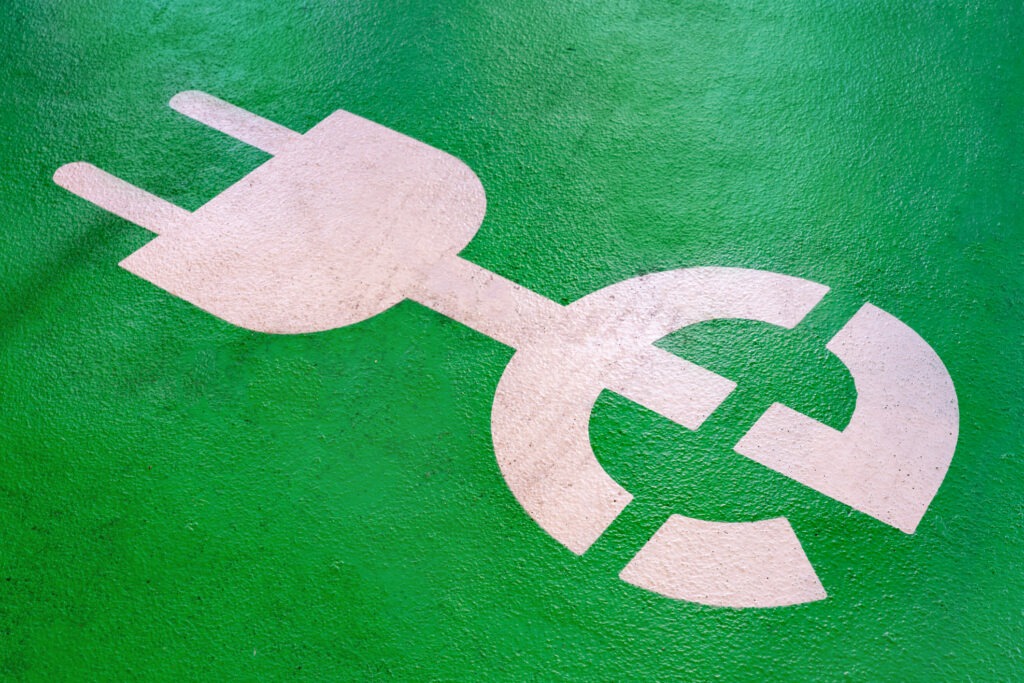Dramatic end to 2023 for Dutch EV market
12 February 2024

December was a strong month for the Dutch electric vehicle (EV) market. José Pontes, data director at EV-volumes.com, explores the most popular brands and models.
Made up of battery-electric vehicles (BEVs) and plug-in hybrids (PHEVs), a total of 13,795 EVs were registered in December 2023. This resulted in a 52% market share for plug-in technology, making it the country’s dominant powertrain. BEVs alone accounted for 42% of registrations.
The full-year EV market share came to 44%, up from 35% in 2022. BEVs made up 31% of the overall registrations in the year, up eight percentage points year on year. These all-electric models represented 71% of the EV market in 2023. This was a slight improvement on the 2022 result of 68%, but still far from the 82% in 2020.
The EV market has demonstrated continual growth. It could even reach 100% BEV registrations before the EU-mandated petrol and diesel new-car ban comes into force in 2035.
A small sales hangover is expected in the first quarter of this year, in line with previous market performances. However, the EV market is expected to pick up again in the second quarter and build towards a market share above 50% by the end of 2024.
EVs head the Dutch market
Tesla took the top two spots in the December EV rankings, as BEVs secured five positions within the country’s overall top 10. The Model Y led the way with 1,507 deliveries, while the refreshed Model 3 secured second, only 14 units ahead of the Volvo XC40.
Outside the top three, the popular MG4 ended December in fourth place with 576 units, cementing the hatchback’s popularity in Europe. The race for fifth and sixth was decided by just one unit, with the BMW iX1 securing 555 deliveries, while the Volkswagen (VW) ID.4 ended the month with 554 units registered.
BMW had a strong month, with the i4 ending December in eighth, having seen 414 registrations in the Netherlands. Other models also contributed towards the carmaker’s deliveries, such as 150 units of the iX3, 124 units of the iX, and 95 units of the i5. These last two models made BMW to be the best-selling brand in the full-size category.
The bottom half of the best-seller table was a close contest, with just 101 units separating the Jeep Avenger EV in 10th, from the Ford Kuga PHEV in 20th place.
The Volvo C40 ended the month in 13th with 251 units. The carmaker was one of two brands to see a tied score. The S/V60 PHEV and XC60 PHEV both tallied 192 units, leaving them in joint 18th, just one unit behind the Dacia Spring.
The new Volvo EX30 recorded 74 registrations in its first partial month on the market, meaning the Swedish carmaker could expect a strong 2024. Kia was the other brand to see two of its models reach the same total in December, as the EV6 and Sportage PHEV both hit 223 units.
Outside the top 20, highlights included the MG ZS EV recording 183 registrations, while the Polestar 2 hit 156 registrations. Mercedes-Benz had a positive month, with the EQB scoring 130 registrations in December, followed by its smaller sibling, the EQA (96 registrations). A surprise result saw the German manufacturer’s eVito Tourer MPV achieve 86 registrations, beating other full-size Mercedes-Benz models in the country.
Chinese carmakers continued to make inroads into the Netherlands. While the 109 registrations of the BYD Atto 3 were not surprising, the 112 deliveries of the XPeng G9 were less expected. The flagship XPeng SUV ended December in third place in the full-size category, just behind the BMW iX with 124 units and the Audi Q8 e-Tron with 147 units.
Three models for Tesla
The Tesla Model Y was the most popular car in the Netherlands in 2023, with 12,778 registrations across the 12 months. This is the second time the carmaker has claimed the top spot in the country, repeating its 2019 success with the Model 3.
This is also the third Tesla model to win the EV best-seller contest in the Netherlands, after the Model S took the title in 2017 and 2018, while the Model 3 triumphed in 2019, on the back of its overall market win.
Highlighting the diversity of the Dutch market, eight different models have taken the best-seller title since 2015. Alongside the Tesla Model Y, this includes the Mitsubishi Outlander PHEV, the VW Passat PHEV, the Tesla Model S, the Tesla Model 3, the VW ID.3, the Skoda Enyaq, and the Lynk & Co 01 PHEV.
The Lynk & Co 01 PHEV ended up in third place in 2023 (6,109 units), unable to catch the second-placed Volvo XC40. Its 8,038 deliveries were made up of both BEV and PHEV models. The biggest threat to the Swedish model in 2024 may come from within, as the EX30 continues to ramp up deliveries.
December’s results caused some last-minute position changes in the year’s ranking. The Tesla Model 3 climbed one position to sixth, while the BMW iX1 jumped to 11th and the MG4 rose three positions to 15th.
The two models have the opportunity to improve even further in 2024. The MG4 is likely to jump into the top half of the table as the year continues. Meanwhile, the BMW iX1 will keep ramping up deliveries and could make the top five by the end of the year.
Size is everything
In the final 2024 city-car table, the Dacia Spring took a surprise victory over the previous leader, the Fiat 500e. The model took the top spot at the last moment, thanks to 193 registrations in December, against the Italian model’s 15 in the month. This meant the Dacia Spring ended 2023 with 1,461 registrations, while the Fiat 500e ended with 1,381.
Meanwhile, the Peugeot e-208 won its third consecutive title in the small-car category. The runner-up, the Opel Corsa EV, also a Stellantis model, ended the year 10 positions below in 14th.
The compact title went to the Volvo XC40, this time beating the Lynk & Co 01 PHEV, while the Kia Niro came third in the category.
The Tesla Model Y regained the midsize title, with the carmaker taking the top two spots, as the Model 3 came second. The BMW i4 took third, but it fell quite some way behind the Model 3.
The Audi Q8 e-Tron secured a confident first place in the full-size category. However, in the final months of 2023, a number of models began lining up to compete for the title in 2024.
Tesla stages a comeback
In the 2023 brand ranking, Tesla took the title with a remarkable bounce back following a lacklustre 2022. The carmaker’s 11.9% market share eclipsed its total from the previous year when the brand only managed a 4.5% hold in the Netherlands.
This marked the fourth time Tesla topped the EV chart in the Netherlands, following its winning streak from 2017 to 2019, and it looks like the strongest candidate to win again in 2024.
Coming in second, BMW took a 9.1% share of the market, its third runner-up spot after 2022 and 2016. Last year’s winner, Volvo, slipped back to third in 2023 with its share hitting 8.8%. With the EX30 piquing interest amongst buyers, the Swedish brand likely suffered from the falling performances of the XC40.
The last month of the year saw some position changes in the final table. Kia jumped two places to fourth thanks to strong performances from its Niro, EV6 and EV9 models. This helped the brand secure 6.8% of the market, up from 6.2% in November.
VW remained in fifth while Peugeot dropped two places after a poor December performance dented its share, with the brand securing 6.4% across the year.
Drama at the top
In the OEM chart, with brands grouped together under their parent companies, there was last-minute drama with a top-spot swap.
Stellantis struggled in December with a number of its brands posting poor performances, including its leading marque, Peugeot. The group’s market share dropped from 15.8% in November, to 15.1% in December.
This, together with another consistent month from VW Group, saw the German company overtake its rival to close out the year with a 15.6% market share. This gave VW Group the OEM title, its fourth in the Netherlands.
Geely-Volvo took third place, with a 14% market share, while single-brand Tesla held on to fourth place with 11.9%. Hyundai Motor Group closed out the top five, with 11.3%, up from 11% in November, thanks to the performance of its Kia brand.



